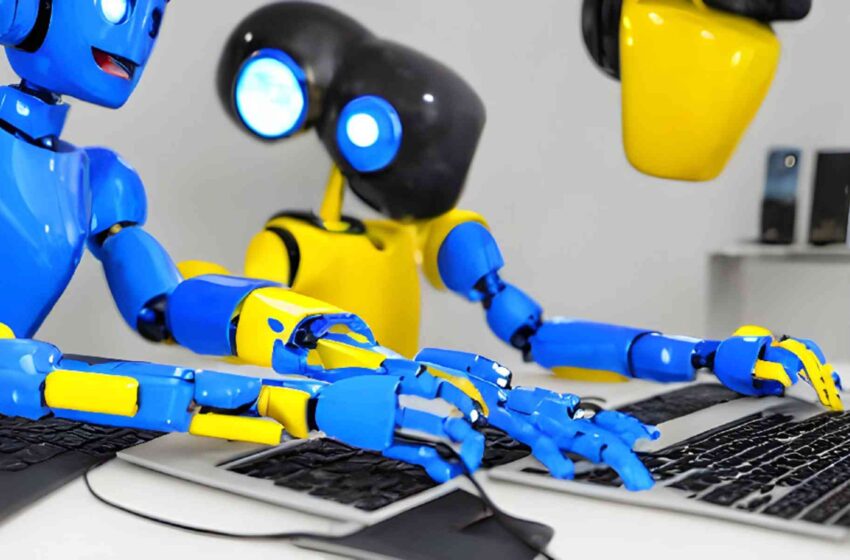
The AI Chatbot Assistants Are Here – Do We Actually Want Them?
A virtual assistant is a computer program that uses machine learning and natural language processing to decipher user questions and generate automated responses. This type of Chatbot AI is commonly found in the form of a chatbot.
These programs can help users perform everyday tasks, like scheduling meetings or rescheduling business appointments. They also provide a layer of friendly self-service.
1. They Can Answer Questions
AI chatbots can help answer common questions that customers send to businesses via email, website, or Slack. For companies that don’t have the time to train agents to answer every question that comes in, bots can help customers get the answers they need faster and on their preferred channel.
Using natural language processing and artificial intelligence, chatbots can understand the intent of customer queries. Then they can use their knowledge base and internal resources to provide a helpful response, ensuring consistency across all channels. In some cases, the AI will even loop in a human agent when they can’t provide the answer the customer is looking for.
Chatbots can also help users find information quickly and easily, a feature that’s particularly useful for businesses that offer technical support or other types of guidance. For example, if a customer isn’t sure what type of product they need, an AI chatbot can help them find the right one by asking simple questions and providing helpful links.
This functionality is especially important for businesses that want to keep their customers happy and loyal, like airlines and hotels. In these industries, the customer experience is key for retaining business and attracting new customers. A chatbot can answer basic questions for a company, freeing up agents to focus on more complex issues and helping customers feel like they are getting the best service possible.
The ability to respond to customers in a more personal manner helps brands build trust, improve loyalty, and ultimately increase revenue. AI assistants can offer a more consistent and personalized experience than human agents, which allows companies to stand out from the competition.
For example, Siri is Apple’s built-in virtual assistant that provides voice recognition and natural language processing to perform tasks on iOS devices. Microsoft’s Cortana uses artificial intelligence to perform similar functions on Windows devices. These assistants are widely used and praised for their ability to provide quick, accurate responses to a variety of questions. However, the process of training an AI chatbot to understand intonation and context is still an ongoing challenge for developers.
2. They Can Schedule Appointments
A chatbot assistant is an invaluable business tool that can help you automate your appointment scheduling processes. This allows businesses to free up a significant amount of time, enhance efficiency and improve productivity.
Chatbots can connect to multiple back-end business systems, such as calendars and databases. This enables them to analyze massive real-time and historical data to observe patterns and trends. These systems can also provide intelligent recommendations based on user preferences and needs. Additionally, they can handle simple appointments and even complex scenarios such as patient referrals and escalation to an expert staff member.
The advanced algorithms used in these intelligent systems enable them to streamline the appointment booking process and optimize resources for businesses across a variety of industries. By providing users with instant responses, AI chatbots help them schedule appointments that work for their convenience and minimize disruptions caused by overlapping or overbooking.
AI chatbots can check availability and then provide users with a table of available time slots based on their preferences. They can even consider factors such as location and duration of the appointment to ensure that the selected time slot is suitable. In addition, these intelligent systems can automatically update their availability status based on real-time changes to avoid potential schedule conflicts.
This automated appointment booking system saves customers a lot of time and effort, and it also reduces the number of calls that are transferred to live agents, which in turn helps reduce contact center costs. Additionally, it helps organizations reduce no-shows by sending automated reminders to customers prior to their scheduled appointment.
In the event of a no-show, AI chatbots can send an automatic cancellation message and redirect the customer to another available option. This not only saves the company valuable time and resources, but it can also improve customer satisfaction by reducing the frustration of customers who are unable to attend their appointments.
Moreover, these chatbots can be integrated with the calendar of expert staff to transfer requests as needed, thereby minimizing time-consuming handoffs. This feature is especially useful in the medical industry, where customers are often referred to specialists. Additionally, the intelligent system can also recommend other available options and suggest new appointment times to the customer.
3. They Can Help You Unclog a Drain
Many people dread having to call customer support to solve an issue. It can be time-consuming, frustrating, and socially challenging. Thankfully, that’s changing. By using AI chatbot assistants, companies can offer a more personalized and efficient way to handle customer care.
AI assistants like Siri and Alexa are able to learn what their users want and need and adapt to their needs. This is a key reason why they’ve become so popular. By learning their users’ preferences, search histories, and other data, AI assistants can provide them with a more customized experience.
For example, if you’re searching for “how to unclog a drain,” AI assistants will use the information they have on your history to recommend some solutions. This is what’s known as contextual intelligence. They can also suggest a specific tool to help you solve the problem.
Aside from being more personalized, AI assistants are also much faster than their human counterparts. This is because they’re able to process massive amounts of real-time and historical data at a high speed. This allows them to quickly and accurately analyze your requests. They can also handle up to 80% of routine customer questions without the need for human intervention.
AI-infused virtual agents can save you money by cutting down on labor costs. They can do this by slashing the amount of time employees spend on handling routine inquiries and by avoiding costly errors. By 2023, it’s expected that chatbots will save businesses in the banking, retail, and healthcare industries more than $11 billion.
Unlike humans, AI assistants are not constrained by working hours, holiday schedules, or illness. They can be accessed 24/7 to assist you with all your queries and issues, regardless of the time or day. This is why more and more companies are choosing to incorporate these AI applications into their business operations.
4. They Can Help You Find Information
A chatbot can help you find information about your bank account, the weather or even a specific topic of interest. AI chatbots, like Apple’s Siri, Google’s Assistant and Amazon’s Alexa are also called virtual assistants.
They work 24 hours a day, non-stop, to assist you. Unlike humans, they don’t get tired or sick and they don’t ask for a vacation. In the enterprise, they are increasingly being used to support customers and employees.
For instance, an AI chatbot that’s integrated with your Zendesk platform can respond to questions sent via email, the website or a Slack channel. It can answer frequently asked questions and direct people to self-service resources. This eliminates wait times and allows for the customer to find the information they need at their convenience.
According to our CX Trends Report, many customers become visibly frustrated and stressed when they are unable to resolve their own issues. Chatbots can offer self-service options to help them navigate community forums, FAQs or knowledge bases. And they can provide answers that are accurate, helpful and consistent with brand guidelines.
Unlike rule-based chatbots, AI chatbots use natural language processing and machine learning to understand the context of user requests and produce pertinent responses. They can improve their performance over time, resulting in faster, more accurate results. And they can automatically adjust their response based on customer feedback.
They can also detect the tone of voice and emotion behind a request, adjusting to a more sympathetic or empathetic tone when appropriate. This helps to alleviate a customer’s stress and keeps them engaged.
Chatbots are a valuable tool that can deflect tickets and handle simple requests, freeing up agents to focus on resolving complex issues or escalations. And if they are well-designed and integrated with the rest of your tech stack, they can help you create a consistent, seamless experience for every customer. However, as you consider an AI chatbot, make sure it meets your deployment, scalability and security requirements, especially if you’re in a highly regulated industry. It’s also important to determine if the chatbot can address all of your use cases, including answering FAQs and identifying recurring customer inquiries.







